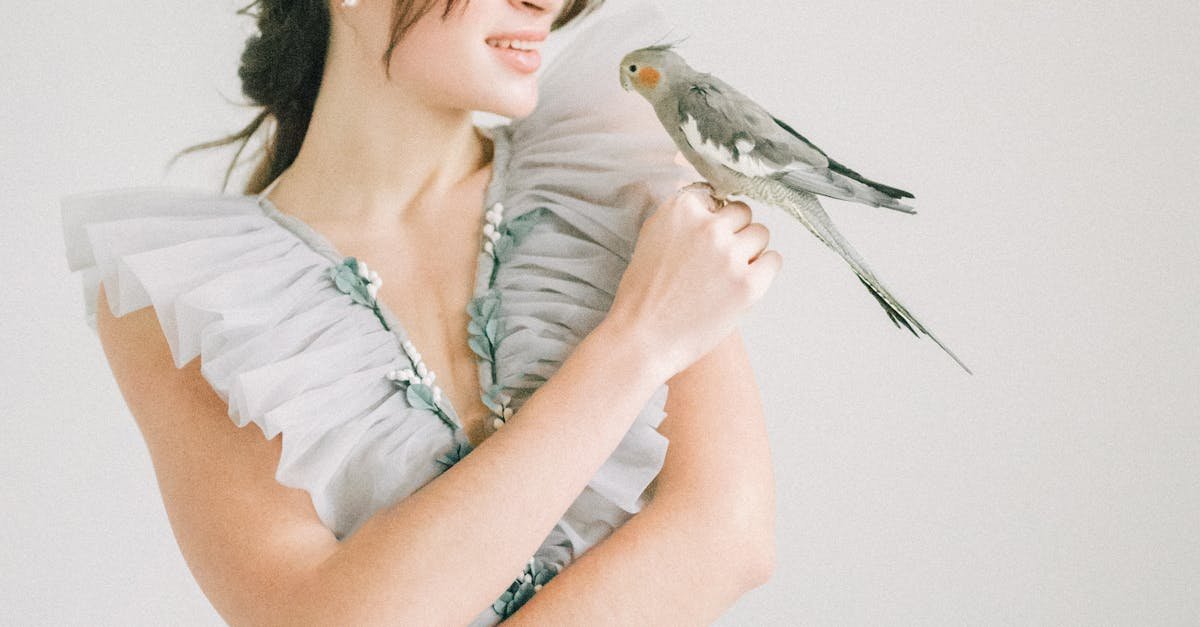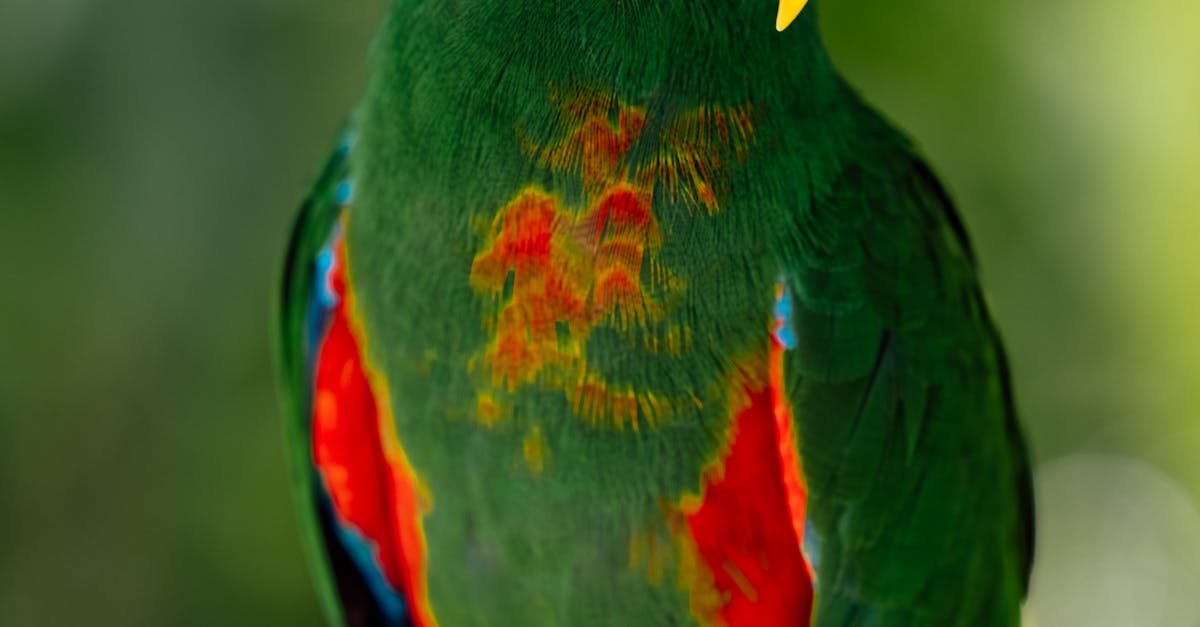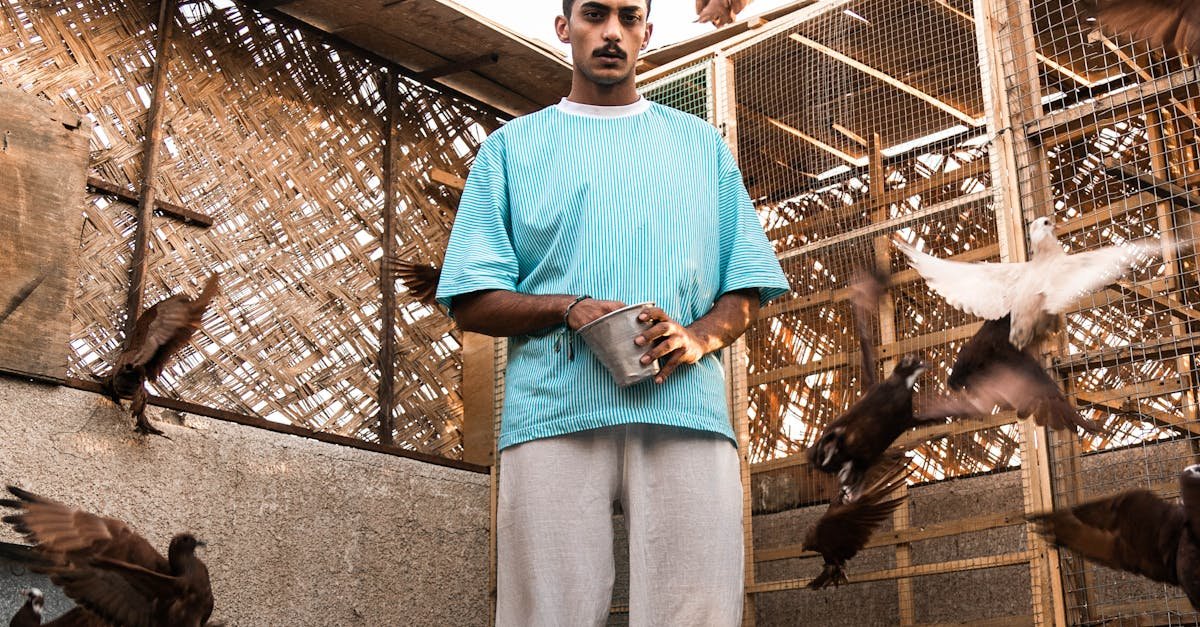Recognizing Health Issues
Monitoring your cockatiel’s behavior and physical condition is essential for identifying potential health issues early. Routine observation can reveal crucial changes in appetite, energy levels, and social interactions. A cockatiel that suddenly becomes lethargic or isolates itself from its surroundings may be displaying signs of distress. Pay attention to any alterations in vocalizations as well, as a change in the frequency or type of sounds may indicate discomfort or illness.
Physical signs can also serve as indicators of health problems. Keep an eye out for changes in feather quality, including excessive molting, dullness, or uneven growth. Additionally, watch for symptoms like weight loss, labored breathing, or discharge from the eyes or nostrils. Regularly checking your pet’s droppings can provide insight into its digestive health; any variations in color, consistency, or frequency could signal a need for further investigation.
Here is a super informative post that goes into more detail.
Signs Your Cockatiel May Be Unwell
Observing your cockatiel’s behavior is crucial for identifying potential health issues. A sudden change in appetite, whether an increase or a decrease, can signal that something is amiss. Weight loss is also a concern, as it may indicate a serious underlying condition. Additionally, watch for lethargy or a decrease in vocalization, as these behaviors can point to discomfort or illness.
Physical signs are equally important to monitor. Look for ruffled feathers, which often suggest that a bird is feeling unwell. Discharge from the nostrils or eyes can indicate respiratory issues. Unusual droppings also warrant attention, as they provide insights into your pet’s digestive health. Any changes in these areas should prompt a visit to an avian veterinarian for a thorough examination.
Essential Toys and Enrichment
Providing a stimulating environment is crucial for a cockatiel’s well-being. A variety of toys, such as wooden perches, swings, and chewable items, can keep your bird engaged. Consider mixing in different textures and colors to capture their attention. Rotating toys regularly can prevent boredom and encourage exploration. Offering puzzle toys or foraging devices can help mimic natural behaviors and provide mental challenges.
In addition to toys, social interaction plays a vital role in a cockatiel’s enrichment. Spend time talking or whistling to your bird to foster a bond. Exposure to various activities, such as allowing supervised playtime outside the cage, can enhance their experience. Providing safe climbing structures and opportunities to interact with different objects can stimulate their curiosity and promote overall happiness.
Stimulating Activities for Mental Health
Cockatiels are intelligent and social birds that require mental stimulation to thrive. Providing a variety of engaging toys can help prevent boredom. Consider offering puzzle toys that require problem-solving or foraging activities that encourage them to search for hidden treats. Mirrors, swings, and bells can also capture their attention, keeping them active and entertained. Rotating toys regularly maintains their interest and introduces new challenges, ensuring your bird remains mentally agile.
Interactive playtime strengthens your bond with a cockatiel and helps enhance their emotional well-being. Spending quality time together, such as teaching them simple tricks or engaging in gentle play, fosters trust and provides the social interaction they crave. Introducing short training sessions can be beneficial for both you and your bird, giving them a sense of accomplishment while keeping their mind sharp. Creating an enriched environment encourages exploration and creativity, essential for a happy and healthy cockatiel.
Regular Grooming Routines
Grooming is an essential part of maintaining a cockatiel’s health and well-being. Regularly inspecting your bird’s feathers is important to spot any signs of molting or potential issues like feather plucking. Bathing your cockatiel allows them to keep their feathers in good condition while also providing a fun and enjoyable experience. A shallow dish of water or a gentle misting can serve as the ideal bath. Many cockatiels enjoy splashing around, which also helps in maintaining their feather quality.
Nail trimming is another critical aspect of grooming. Overgrown nails can lead to discomfort, making it challenging for your cockatiel to perch or walk effectively. Checking their nails regularly and trimming as needed is important. It’s recommended to use special bird nail clippers or a file to avoid hurting your pet. If you are unsure how to proceed, consider consulting with a veterinarian or an experienced bird groomer for guidance. Regular grooming not only contributes to a healthy and happy cockatiel but also strengthens the bond between you and your feathered friend.
Feather Care and Nail Trimming
Proper feather care is vital for the overall health and well-being of your cockatiel. Regular bathing is essential as it helps remove dust and debris from their plumage. Providing shallow dishes of water or using a spray bottle with lukewarm water can encourage your bird to enjoy a bath. Remember, a clean feather coat contributes to the bird’s ability to maintain body temperature and perform essential behaviors, such as preening.
Nail trimming is another critical aspect of cockatiel care. If nails become too long, they can impede your bird’s mobility and lead to health issues. Regular checks are necessary to determine if a trim is needed. Use specialized bird nail clippers for this task, aiming to cut just above the blood vessel that runs through the nail, called the quick. With patience and practice, nail trimming can become a manageable part of your bird’s grooming routine.
Please be sure to check out The Complete Guide to Wild and Pet Bird Care: Tips, Products, and Resources
FAQS
What are the common signs that my cockatiel may be unwell?
Common signs that your cockatiel may be unwell include changes in appetite, lethargy, fluffed feathers, excessive droppings, or vocalization changes. If you notice any of these signs, it’s best to consult an avian veterinarian.
What type of toys are best for cockatiels?
Cockatiels enjoy a variety of toys, including bells, wooden blocks, swings, and foraging toys. It’s important to provide toys that encourage chewing and mental stimulation to keep them engaged.
How often should I groom my cockatiel?
Regular grooming should be done as needed, but you should aim to check your cockatiel’s feathers and nails every few weeks. Nail trimming may be required more frequently, while feather care can depend on their molting cycle.
What activities can help keep my cockatiel mentally stimulated?
Activities such as foraging for treats, interactive toys, and regular playtime outside of the cage can help keep your cockatiel mentally stimulated. Training sessions and music can also provide enrichment and bonding time.
How can I tell if my cockatiel is happy and healthy?
A happy and healthy cockatiel typically has bright, unfluffed feathers, is active and playful, sings or whistles regularly, and has a good appetite. Observing these behaviors can help you gauge their well-being.
Related Links
The Ultimate Guide to Owning a Cockatiel
What not to do to a cockatiel?
How many days can a cockatiel be left alone?
Do cockatiels like to be held?
What do cockatiels love the most?
Is it OK to spray a cockatiel with water?

My name is Shane Warren, the author behind Chirping Birds Hub – your ultimate guide to the wonderful world of birds! Unleash your inner avian explorer as we delve into a vibrant library of knowledge dedicated to all things feathered. From learning about diverse bird species from across the globe to understanding their captivating habitats and behaviors, I’m here to fuel your passion for these magnificent creatures. Not only that, but I also provide valuable insights on being a responsible and informed pet bird owner. Join our vibrant community and let’s celebrate the feathered wonders of the world together – one chirp at a time.


